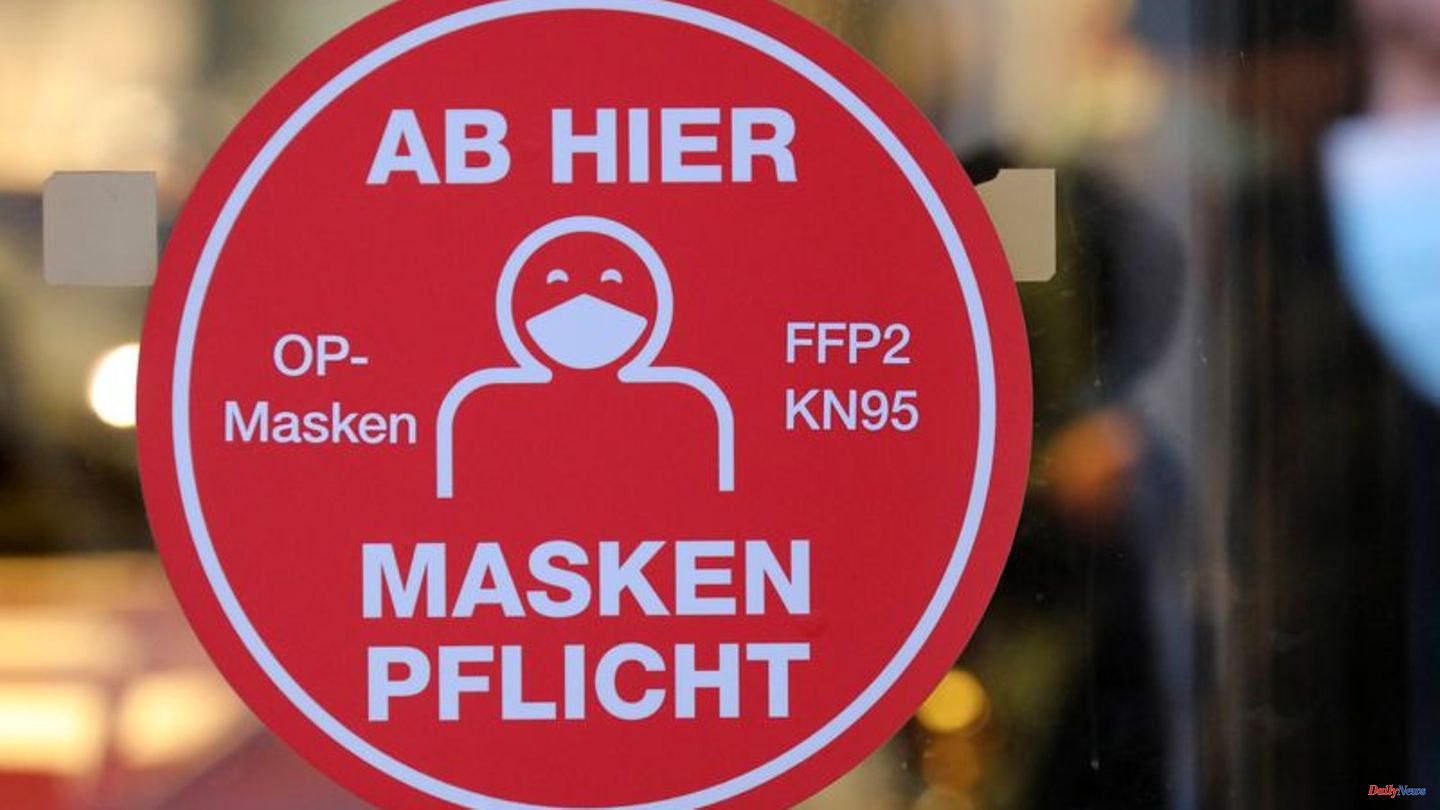The criticism of the federal government's corona protection plans for the cold season continues. The head of the German Hospital Society (DKG), Gerald Gass, called for improvements to the planned Infection Protection Act. “We welcome the fact that it should still be possible to wear masks indoors,” he told the “Rheinische Post”. "But the exceptions for vaccinated people are completely impractical and therefore contradict the goal of good protection against infection."
The rules planned for clinics cannot be implemented either. "It is planned that in the future all hospital employees and visitors will only be allowed to enter a hospital with a current test or a vaccination certificate that is no more than three months old (after triple vaccination) and in both cases an FFP2 mask," explained Gass.
The draft for the new Infection Protection Act includes, for example, that the federal states may again impose mask requirements from October. A mask requirement on buses, trains and planes should continue to apply nationwide, as well as a new requirement for masks and tests in hospitals and care facilities.
Criticism of mask requirement exceptions
Among other things, there is criticism that people should be exempt from the mask requirement in restaurants or at cultural and sporting events if their vaccination is not older than three months. There were also differences about the exceptions provided by the federal government for newly vaccinated people at a conference of health ministers (GMK) of the federal and state governments.
Health Minister Karl Lauterbach (SPD) made it clear in view of the criticism of the past few days that the possibility of exempting the mask requirement is by no means a recommendation for a booster vaccination every three months. That is absurd and would also be "medically nonsensical," said Lauterbach in the ARD "Tagesthemen". The minister is currently recovering from a corona infection himself.
Lauterbach suspects the desire of some to return to the pre-Corona times behind the criticism of the draft for the Infection Protection Act, the SPD politician made clear in the ZDF “heute journal”. "We want to build on some of the rules that we've had before. And many don't want that." Instead, many just wanted to continue living as before - as if Corona were over so that autumn could be easy. However, infestation of society is not an option for the federal government because it would mean too many deaths, said Lauterbach.
FDP politicians: countries get enough tools
FDP health politician Andrew Ullmann warned the federal states against untying the draft law of the red-green-yellow federal government again. "The health ministers of the federal states are on the wrong track if they demand further tightening," he told the "Augsburger Allgemeine". "We are giving the countries enough tools to fight the pandemic in a decentralized manner." According to the newspaper, Ullmann announced that the proposals from Lauterbach and Minister of Justice Marco Buschmann (FDP) would be examined in the legislative process in the Bundestag for their practicability.
A spokesman for Bavaria's Health Minister Klaus Holetschek (CSU) demanded in the newspapers of the Bayern media group: "We need clear indicators and threshold values to determine when which measure should take effect." The federal government must do this. "If each country decides for itself, we will never arrive at uniform and comprehensible rules, but only increase the legal risks."
The Professional Association of Pediatricians (BVKJ) meanwhile spoke out against compulsory masks for schoolchildren in autumn and winter. “The BVKJ is fundamentally against compulsory masks in schools,” said Jakob Maske, federal spokesman for the BVKJ, the editorial network Germany. "It is also important that there should no longer be any random tests, the sensitivity here is only 40 percent," says the pediatrician. There are many false negative, but also false positive results.












